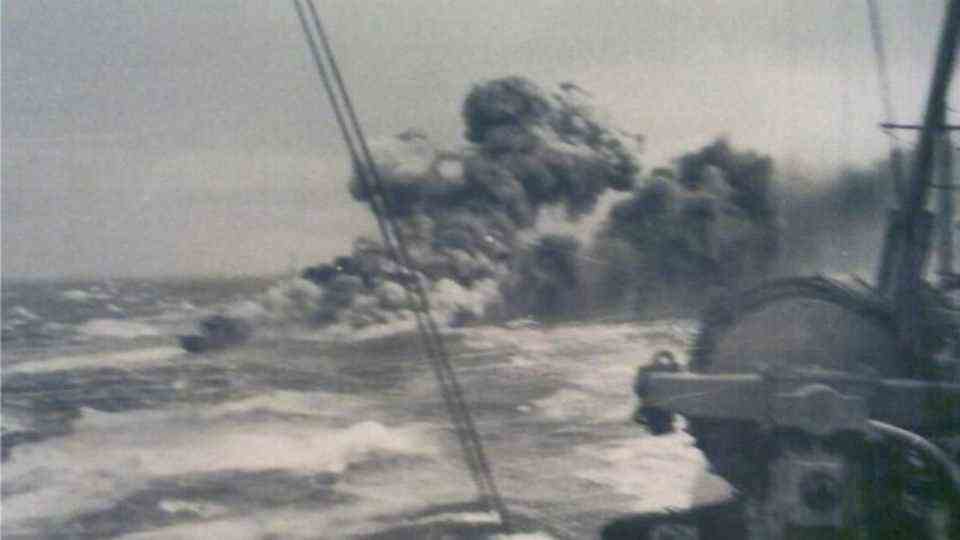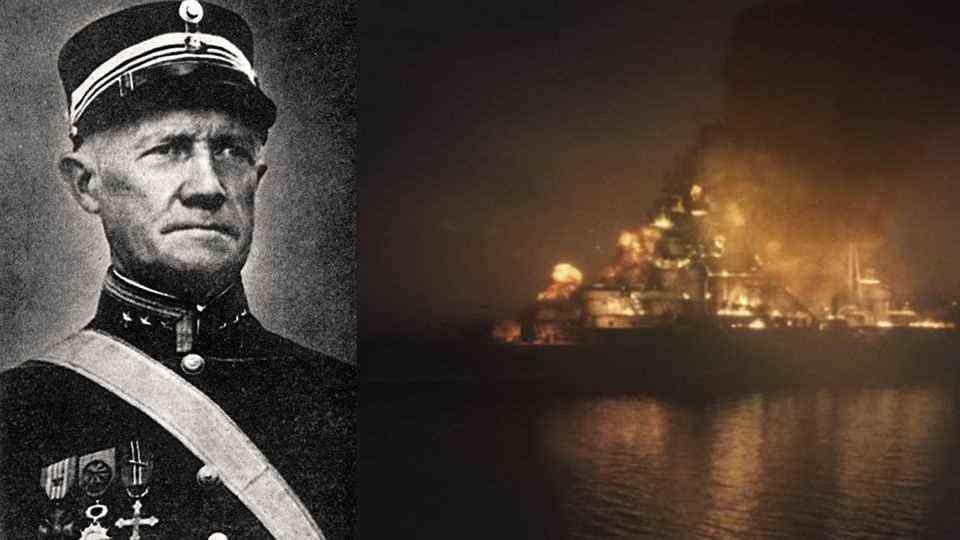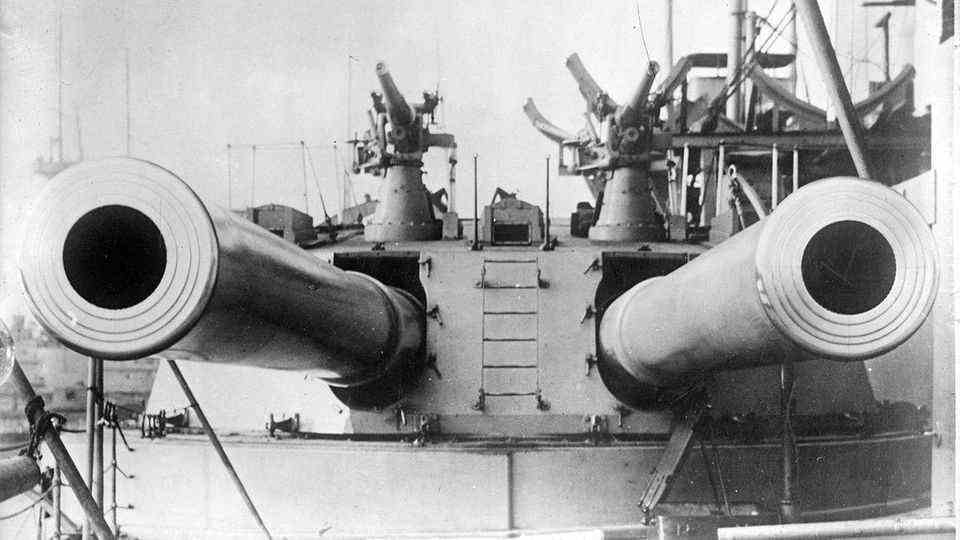“HMS Glowworm”
Small destroyer rams heavy cruiser – How a Nazi captain gave a British the highest order
The “Hipper” in front of the burning “Glowworm”
In 1940 a small British destroyer encountered the formation of the heavy German cruiser “Hipper”. The captain of the “Glowworm” decided not to flee, but attacked the ten times larger German ship head-on.
The “HMS Glowworm” (H92) was a British destroyer. Built in the thirties, the ship and a task force were supposed to secure the laying of mines in Norwegian waters on April 5, 1940. At that time Norway was still a neutral state – but it was foreseeable that the British and Germans would meet there.
Battle of Norway
But nobody suspected that the little “Glowworm” would fight the first battle. The destroyer had lost contact with his majesty’s other ships and also with the mighty battleship “Renown”. Instead of its own combat group, the British destroyer encountered the German naval association that was to occupy Trondheim and Narvik. At first the “Glowworm” only saw two German destroyers and opened fire. But the ultra-modern “Hipper” ran up behind the German destroyer. The “Glowworm” had no chance against the firepower of the 20.3-centimeter guns of the “Hipper” and certainly not here, since the “Hipper” was accompanied by its own destroyers.
Unequal encounter
At first, the Hipper couldn’t make out the glowworm exactly – but after a few minutes the 8-inch batteries began to shoot into the smaller ship. The fourth volley was on target. The British captain Lieutenant Commander Gerard Broadmead Roope tried to hide in his own smoke screen. The maneuver was unsuccessful as the Hipper’s guns were guided by the radar. By the time the Glowworm emerged from the fog, it was already within range of the Hipper’s secondary armament. The hits dismantled the British destroyer. The front cannon was destroyed. The radio room, bridge and engine room received hits – finally the mast also collapsed. A short circuit led to a continuous howling of the horn, a ghostly noise that should accompany the death of the ship and its crew. The captain did not want to surrender, but went on an attack course to the “Hipper” in order to shoot a torpedo fan at the cruiser. The German captain saw this coming and placed his ship at an acute angle to the “Glowworm”. So it offered the torpedoes only a narrow target. The torpedoes ran into emptiness, but even the broadside of the “Hipper” could no longer hit the “Glowworm”.
Last chance – ram the “hipsters”
In smoke and fog, the superior ship followed the destroyer to sink it. When the “Glowworm” emerged from the fog again, the wounded destroyer went on a ramming course – his last chance to damage the ten times larger ship. The “Hipper” was hit just behind the anchor, then the wreck scraped along the wall of the cruiser and tore it open in several places. The front torpedo launcher of the “Hipper” went overboard.
Too weak to save yourself
The last gun of the “Glowworm” fired again at 400 meters at the cruiser, then the unequal battle was over. Captain Roope said goodbye to an officer and said that the two of them would probably not play cricket for a while. Then he got into the ship to open the flood valves and the “Glowworm” sank into the depths. First the boiler exploded, shortly afterwards the depth charges on board. Their detonation killed part of the crew who were struggling to survive on the cold water. The German captain had the “Hipper” stop and put them in the sea in such a way that the survivors drifted towards them. From above, the German sailors threw ropes and life jackets at the British and tried to pull them on board. Captain Roope swam in the freezing water below, helping his men below the ship’s side to catch the ropes and put on life jackets.
When he finally wanted to save himself, the hypothermic and exhausted man could no longer hold the rope with which he was to be pulled on board. Roope fell back into the waves and drowned. As the first Briton of World War II, he was awarded the Victoria Cross. The German captain, with the help of the Red Cross, had informed the British Admiralty of the courage of Roope and his crew in the face of the vastly superior German forces. It was the only time in British history that the award of the Victoria Cross was recommended by the enemy.





